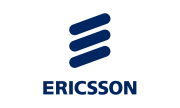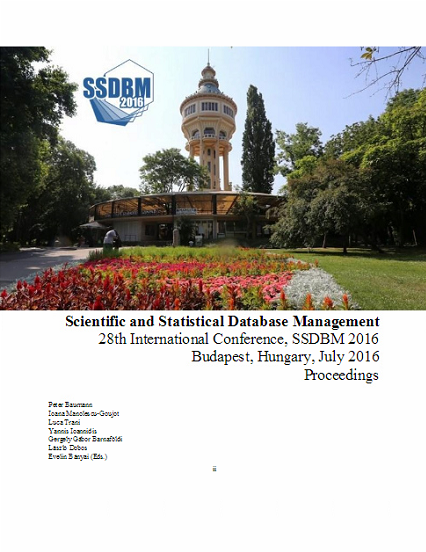Call for Papers
AIMS & TOPICS OF INTEREST:
Every science discipline needs data management. Scientists produce data, collect and aggregate data, analyze and visualize data, and may need help in mining and interpreting data. As new arenas in science emerge, new data management challenges that potentially need creative solutions, also evolve.
The SSDBM international conference brings together scientific domain experts, database researchers, practitioners, and developers for the presentation and exchange of current research results on concepts, tools, and techniques for scientific and statistical database applications. The 28th SSDBM will provide a forum for original research contributions and practical system design, implementation and evaluation. The rich program of the research track will be supplemented with invited talks, panel sessions, and demonstrations of research prototypes and industrial systems.
This year’s particular focus topic is related to scalable and expressive platforms for very large-scale experimental data. Modern physics, genomics, and climate science are rich producers of applications in this area, but they are not the only ones.
Such high data volumes, in particular data streams, require highly scalable and robust tools for analyzing the data; such tools oftentimes need to blend general data processing capabilities with dedicated processing modules (specialized numerical computations, for instance). A variety of tools and architectures are currently explored for such applications; we welcome novel algorithms or approaches, as well as in-depth use case descriptions, highlighting achievements and challenges faced when developing the application, and raising novel research problems.
In general, the topics of interest related to scientific data management include, but are not limited to:
- Data support, and applications; particularly for grand challenge science questions, e.g., sustainability, global climate change, energy, etc.
- Modeling and representation of data, metadata, ontologies, and processes, e.g., streaming data models
- Integration and exchange of data, including the federation and management of institutional data repositories
- Design, implementation, optimization of scientific workflows
- Cyberinfrastructure for scientific computing and eScience
- Data-intensive and cloud computing
- System architectures for scientific and statistical data management and analysis
- Querying of scientific data, including spatial, temporal, spatio-temporal, and streaming data
- Annotation and provenance of data
- Mining and analysis of large-scale datasets
- Security and privacy
We will also like to invite case study reports that focus on interesting data management issues related to real-world scientific problems. For example, case studies can be devised around:
- Genomics
- Astronomy
- High-Energy Physics
- Digital Humanities
- Wearable Sensor Data
- Big Data in E-Health









